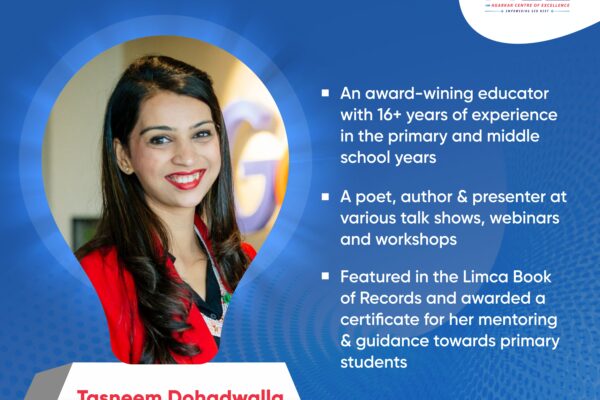Over our usual dinner conversation last night, my 15 year made a statement that left an impact. “Ma, through the pandemic as I follow world news and especially in this country where people think of making money off worried patients (oxygen tanks, vaccine jab scams), crime (rape statistics are scary), ‘maskless’ photographs being circulated about people believing it is all behind them and the overall lack of humanity and empathy not to mention commen-sense has made me wonder how all this ‘learning’ that educated people have helps them make choices that have some pretty severe consequences for many others – they are only thinking about themselves? Or is lack of ‘education’ the real reason?’
Probing question isn’t it? And this one hits home for any educator or parent reading it. As I counsel parents for high school admissions and what they really need to think about (metacognition for starters not grades), the ultimate question is always ‘best’ school.
What defines this ‘best’ school?
For me, a school is time spent by children interacting with peers, being nurtured by teachers who can break down concepts at their level and explain and with that allow them a path to think, find solutions, a place to build relationships, and open your mind to new ideas, it is about being exposed to different skills like theatre or sports, or music and dance, it about negotiations and time management, it is about independence and taking ownership and making mistakes, it is about accepting another point of view – it is about interacting with teachers and learning from their experiences, it is about lunch conversations and laughing, it is about eventually graduating with skills that help transfer that knowledge into something that will allow the child to pursue a career that keeps them occupied, happy and provides them an opportunity to sustain their lifestyle.
I was told by many educators that I am a dreamer and that the reality is that parents do not want all this. The purpose of a good school is to ensure that ‘grades’ are achieved so that the transition is achieved seamlessly.
Fair, I understand that. Ofcourse education ‘practically’ is a means to an ‘end’ that society requires. I get them. But are we thinking of what children want? Or think?
Are we really answering their questions?
My son’s question is directed at all of us – would we rather have a child who thinks compassionately and believes in what he does, or would we rather take a 99.9 percent marksheet (aren’t these the ‘expected’ results these days?).
My response to my son was that those that are fortunate to be in school (and he understands the landscape in India with regards to the number of enrolments that have dwindled in the past year) need to also be responsible for finding solutions and not sit on the french and make statements. What can you do? How can you help? Also, those who continue to dilute the spirit of humanity will eventually be found out, and live their own consequences provided those that have the right vision put laws in place to course correct. The world is not a perfect place, and therefore it keeps us in the hunt, always learning. You can either become a cynic or a problem solver.
Safe to say, the conversation ended (😂) but I know he’s thinking along those lines. Because as a mum as much as I want him to ‘ace’ all exams, I would prefer he do it independently, making choices and decisions that he understands best but should that not work out, I would rather have a thinking child who is also focused on finding solutions. And that means it may or may not translate into grades. As parents, Ajit and I strongly believe in that.
So let’s get back to schools. How often do we do this in school? We talk about PBL or themes, we talk about learning outcomes, when will we in our schools talk about ‘real’ issues?
When will we have a marksheet that grades empathy as a subject.
Something to think about?
-
Fatema Agarkar, Founder and Chairperson , Agarkar Centre of Excellence (ACE)
Veteran of 3 educational start-ups , now Founder of the Agarkar Centre of Excellence, Fatema’s passion for teaching-learning and children defines the different roles she has crafted in 20 years – as an edupreneur, educator and mentor.
Fatema who is a State and University topper as part of the prestigious Mumbai based Sydenham College of Commerce & Economics, holds a degree of Masters in Business Administration (MBA) from Birmingham (UK), apart from her B.ED and ECCE degrees amassed when she decided education was her calling. Having kick-started her career in the corporate world and working with premier organizations like Commerzbank, Times of India and Egon Zehnder International, she always had an inner urge to bring about an enhancement in the sphere of education..
As an educationist and life-long learner, she has come a long way to intertwine modern methods of learning, teaching and customizing education as per the student’s intellectual requisites thus eradicating stress that stems from the education system. She has been sedulous in making comprehensive alterations in the education field in India. Being a risk-taker, Fatema has been focusing on the generation of innovative educational modules and her in-depth academic know-how, nothing but truly defines her ceaseless passion. Her name is synonymous with successful education models of the country and she is adjudged as Education World’s top 50 Educators in the year 2020. Adding more feathers to her hat, she has also been the recipient of several prestigious awards for her outstanding contribution to the field of education in the years 2013 and 2015.
Fatema has been awarded by Giants Group for her outstanding contribution to the field of education in 2012, the Young Achiever’s Award in the year 2017, Singapore based, Best of Asia’s, ‘Enterprising Educator in the year 2018 and as an entrepreneur ‘Best Edupreneur 2019 and Best Leadership’ by Progressive Academic Excellence India (Maharashtra 2019) and one of the 10th finest inspirational educators in 2019 by TKR, India . Her name is synonymous with successful education models of the country and she is adjudged as Education World’s top 50 Educators in the year 2020. Adding more feathers to her hat With close to 2 decades of experience in education, Fatema is the recipient of several honours including the Indian Achiever’s Award 2021. In July 2023, Fatema was also awarded the ‘Mumbai’s top Women Leader’ award by the CMO Asia National Awards’ (10th edition). Fatema is also a Jury Member for Cambridge School Recognition Awards 2025.
Having being associated with leading high school brands like DRS International, Hyderabad, NSS Hill Spring International, Mumbai, The Gera School, Goa, D Y Patil High School, Talegaon (Pune), SVM, Ratnagiri by the Gadre family, The Excellere World School, Gurgaon, JBCN International Schools, Mumbai, Fatema has now close to 40 pre-schools and high schools that she has set up from the grassroot level including a school for special needs’.
Fatema is on the Advisory Board of several Trusts including EduTech India, Wockhardft Foundation as well as a jury member, Education World Awards, a platform that recognizes the efforts of educators pan India. Fatema is also the Vice President for Early Childhood Association (ECA) and the Mumbai Territory Head for Association for Primary Education & Research (APER) in India. Fatema has been appointed as the global ambassador of the Commonwealth Entrepreneurs Club. . Fatema is on the advisory board of the All-India Gaming Federation (AIGF) and currently appointed as the National Council Member for Financial Literacy & Management by WICCI. Given her access to parents and her ability to provide age appropriate strategies to enable them to make more informed choices, Fatema’s passion remains counselling in the hope that effective parenting will enable children to benefit the most.
Fatema is also the special advisor of the Child Chapter Association (CCA), a non-governmental organisation registered as a Section 8. company under the Companies Act, 2013 whose mission is to spread awareness and eliminate child abuse, including child sexual abuse. Her role as a special advisor of CCA includes providing advice and guidance for their special outreach programs for Schools and teachers that tap into the child psyche and help them raise their voice against abuse. Fatema also played an instrumental role in the development of the CCA comic books and characters for their global campaign for child abuse awareness and prevention.
Currently, Fatema is the Advisor & Mentor to Finland International School, Race Course and on course to start her own school in 2026. As a TedX speaker, and a avid blogger, Fatema is passionate about sharing her knowledge amassed and inspiring stakeholders be it teachers, parents or students.
Her vision includes set up up of Soup Kitchens, Foster Homes and a community centre for the elderly under the Agarkar Foundation in time.
View all posts












